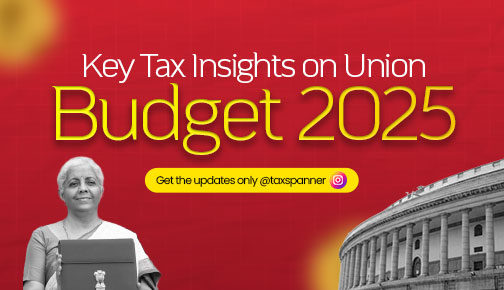All you need to know about Form 26QB
What is Form 26QB?
- A challan-cum-TDS return form for deducting tax at source on the sale of immovable property.
- Applicable under Section 194IA of the Income Tax Act.
- Ensures compliance with tax regulations during property transactions.
Why is it important?
When is Form 26QB required?
Exemptions:
Parties Involved:
Details Needed:
Payment Timeline:
Steps to File Form 26QB:
Post-Filing Requirements:
Compliance Rules:
Penalties for Non-Compliance:
Property Sale Example:
- Sale price: ₹80,00,000
- TDS Rate: 1%
- TDS Amount: ₹80,000
Steps:
- Deduct ₹80,000 from payment to the seller.
- File Form 26QB within 30 days.
- Issue Form 16B to the seller after successful filing.
- Common Errors:
- Incorrect PAN details.
- Delayed filing/payment.
- Mismatch in property details.
How to Correct Errors?
Benefits of Timely Filing
- Avoid penalties and interest.
- Smooth property transaction process.
- Compliance with tax laws ensures no legal disputes.
Conclusion & Key Takeaways
Key Points to Remember:
Final Thoughts:
- Filing Form 26QB is straightforward but critical.
- Proper compliance safeguards both buyer and seller.
| Particulars | UPS | NPS |
|---|---|---|
| Employer’s Contribution | 18.5% of basic salary | 14% of basic salary |
| Pension Amount | 50% of average basic pay (for 25+ years of service) | Depends on market returns, no guaranteed amount |
| Family Pension | 60% of pension in case of the retiree’s death | Depends on corpus and annuity plan |
| Minimum Pension | Rs. 10,000 per month (for 10 years of service) | Varies based on market investments |
| Lump Sum Amount | Provided as 1/10th of last drawn pay for every six months of service | Employees can withdraw up to 60% of corpus |
| Inflation Protection | Yes, based on AICPI-IW | No automatic DA increments |
Section 80G :
Section 80G of the Income Tax Act provides tax deductions for donations made to specified charitable institutions and funds. This deduction is available to individuals, Hindu Undivided Families (HUFs), companies, and other entities. It serves as an incentive for taxpayers to contribute to social causes by encouraging a culture of charity.
Who Can Claim 80G Deduction?
Any taxpayer, be it an individual, HUF, company, or any other entity, can claim 80G deduction, with a condition that they have made eligible donations.
Eligible Donations to claim 80G Deduction:
Not all donations qualify for 80G deduction. The Act specifies certain institutions and funds to which donations must be made eligible. These generally include:
- Donations to the Prime Minister's Relief Fund or the National Defence Fund: These are typically 100% deductible, meaning the entire donation amount is eligible for 80G deduction.
- Donations to certain charitable institutions and religious trusts: These can include donations to organizations focusing in areas like education, healthcare, poverty alleviation, and preservation of art and culture. The 80G deduction percentage may vary, often being 50% of the donation amount.
- Donations for renovation or repair of notified temples, mosques, gurudwaras, churches, or other places of worship: These may also be eligible for 80G deduction, often at 50% of the donation amount.
Explore TaxSpanner's wide range of calculators for your tax planning and calculations!
View Tools & Calculators




